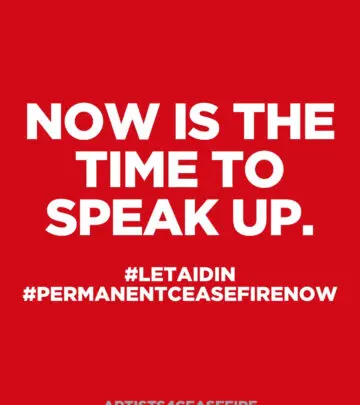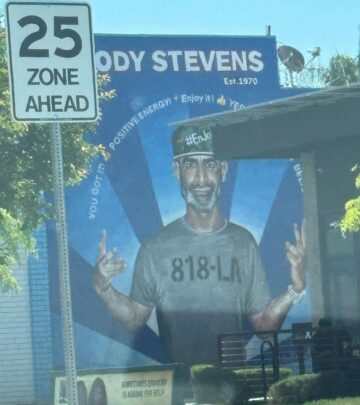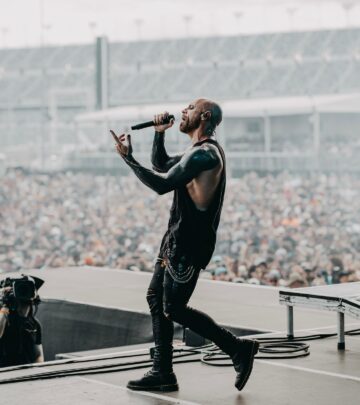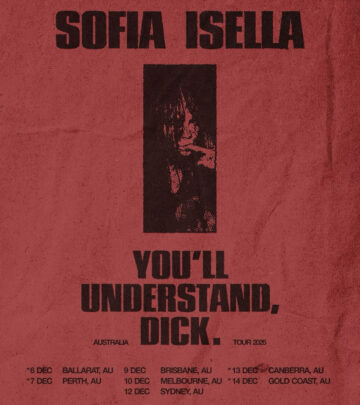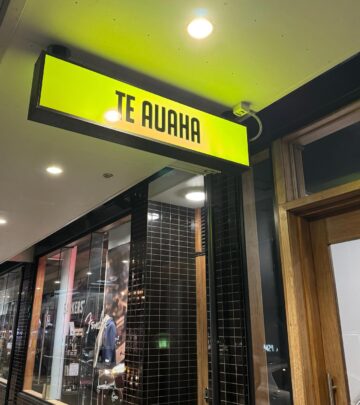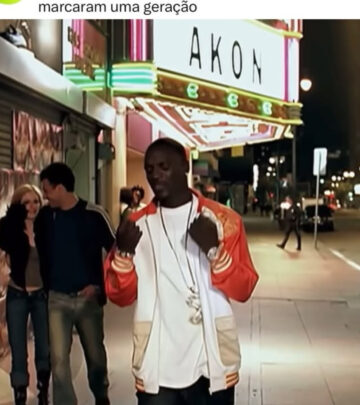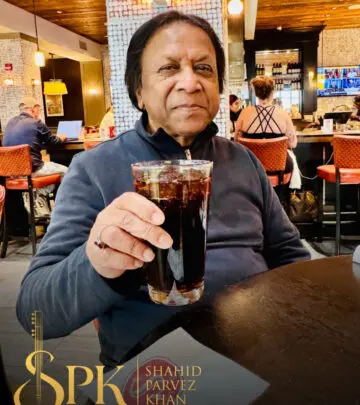Urgent Plea For Gaza Aid Amid Worsening Blockade
Human rights activists decry government inaction as aid drains and Gaza faces famine now.
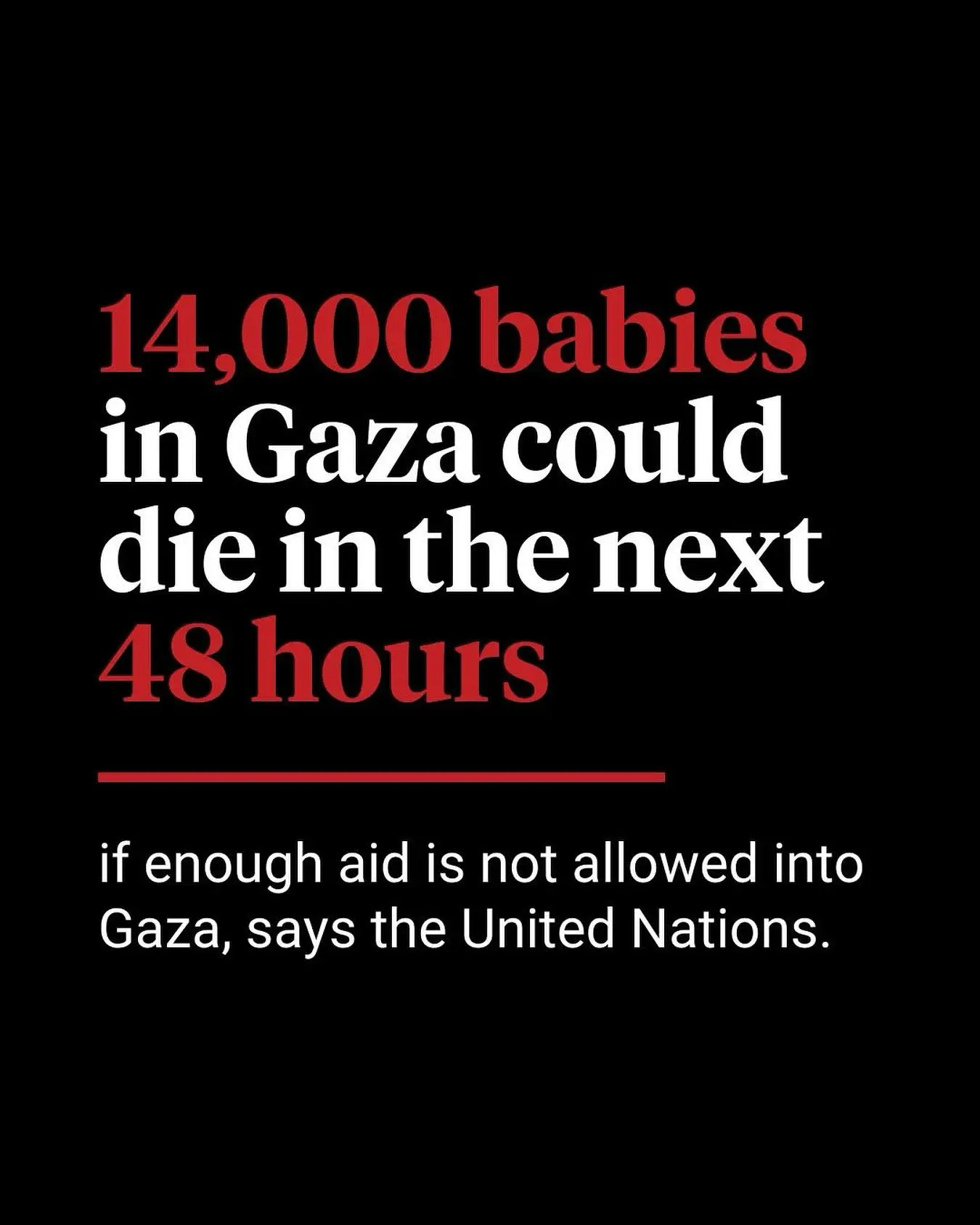
Image: Instagram
In a powerful social media appeal, a vocal critic declared that no child should be starved to death by their government, describing the ongoing blockade in Gaza as a war crime. The critic underlined that the US and UK governments, complicit in enabling this crisis with taxpayer money, must be held accountable. The post comes at a time when the United Nations warns that 14,000 babies in Gaza could die within 48 hours without immediate humanitarian aid.
Un Crisis Update
The UN has recently reported a grim scenario in Gaza—with over 2 million people facing an escalating threat of famine in an enclave already battered by weeks of bombardment. A U.N. official described the arrival of 100 aid trucks as merely a drop in the ocean, a marked improvement from fewer than 10 trucks permitted just a day earlier. However, even this increase falls woefully short of meeting the needs of a population under siege, in an environment where over 73 Palestinians were reported killed overnight due to ongoing military strikes.
The criticisms in the post are sharp and unequivocal. The use of phrases such as “war crime, plain and simple” underscores the severity of the allegations made against governments actively involved in the crisis. Advocacy for a permanent ceasefire (#PermanentCeasefireNow) is framed as a moral imperative—not only to halt the current catastrophe but also to protect a generation of innocent lives caught in the crossfire.
Aid Efforts So Far
The humanitarian efforts are marred by the systemic challenges imposed by a total blockade that has now stretched to 11 weeks. With aid supplies described as a slow trickle—the first permitted entry of food in nearly three months—the situation in Gaza grows more desperate with each passing day. The approved 100 aid trucks, though a step forward from previous counts, barely scratch the surface of what is needed in an area where food, water, and medicine remain critical for survival.
The UN’s warning about the potential death of 14,000 babies is a stark reminder of how quickly the humanitarian situation can spiral out of control. This message rattles not only the political establishments directly involved but also resonates with global citizens and influencers who have access to vast audiences via social media.
Celebrity Voices On Human Rights
While the crisis in Gaza unfolds, voices from the entertainment world are also joining the call for human rights. Notably, acclaimed Irish actress Nicola Coughlan—widely recognized for her roles in popular series such as Bridgerton and Derry Girls—has built a reputation as someone who leverages her public platform to champion social justice causes. Although best known for her on-screen roles and British Vogue appearances, recent posts by Coughlan remind us that celebrities often use their influence to raise awareness about significant issues. Her engagement participates in a broader trend where public figures contribute to political discourse, emphasizing that humanitarian work and entertainment are not mutually exclusive.
Nicola Coughlan’s involvement, even if indirectly referenced through her social media presence, illustrates how cultural icons are increasingly navigating issues beyond the glitz of red carpets. Her history of candidness on mental health and social issues has earned her accolades not just for artistic talent, but also for empathy and advocacy. This underscores a growing expectation for public figures to stand united on global issues—adding a human dimension to the pleas of ordinary citizens and the clarion calls of international organizations.
A Dire Call For Accountability
In the face of severe humanitarian shortages, the social media post goes further than simply detailing numbers and statistics. It challenges the moral and ethical responsibilities of governments whose policies directly influence the fate of millions in Gaza. The language is unambiguous: tax money that inadvertently supports a blockade leading to civilian starvation must be scrutinized heavily. The call to hold those in power accountable is a reminder that policy decisions, even when couched in technical jargon about security or defense, have real and tragic human consequences.
With Israeli forces vowing to assert full control over the already embattled region, the stakes have never been higher. The depiction of a slow aid trickle arriving amidst relentless military attacks paints a picture of a humanitarian catastrophe in slow motion. Under these dire circumstances, international actors and global citizens alike are compelled to demand immediate action—a permanent ceasefire and an unfettered flow of humanitarian supplies.
At its core, this social media outcry is both a demand for justice and a plea for humanity. It serves as a stark reminder that amid geopolitical shifts and military strategies, the rights of the most vulnerable should remain inviolable. The situation in Gaza is not merely a political dispute; it is a humanitarian crisis that challenges the conscience of the world.
The narrative, supported by international warnings and bolstered by voices from across the cultural spectrum, calls upon every individual to stand up against what is being described as an unfolding war crime. As the crisis deepens, the global community is left with an urgent mandate: to act swiftly, to act justly, and to remember that behind every statistic is a human life in peril.
Read full bio of Cynthia Jean Daniel



